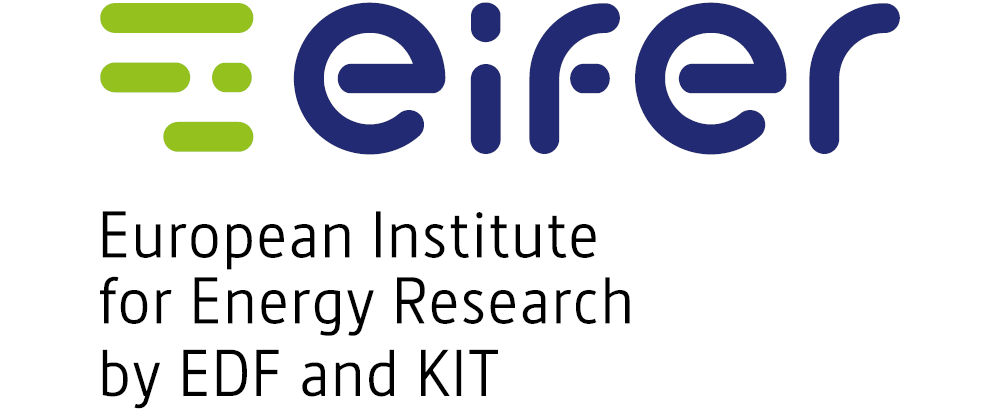Low Carbon Hydrogen Systems
Low-carbon hydrogen is a promising alternative to fossil fuels in the mobility sector and for industrial applications. It also offers clean and sustainable solutions for energy storage and distribution, such as power-to-gas, insertion into the natural gas grid and reconversion to electricity via fuel cells. Furthermore, it can help improve the impact and reliability of intermittent renewable energy sources and balance the power grid via innovative electrolyser operation for peak load management. It has three times the energy density of fossil fuels and several types of storage capabilities: compressed gas, liquid or solid.
For over 15 years, EIFER has contributed to the development of cost-effective, high-performance and sustainable hydrogen solutions. We support the advancement of hydrogen technologies along the whole value chain, including:
- Laboratory-level research and testing of fuel cell and electrolyser technologies
- Development of innovative solutions for hydrogen refuelling station (HRS) core components, including material development and system integration
- Field demonstration projects for technologies, including CHPs, high-temperature electrolysis and hydrogen mobility
- Market and business case studies, technoeconomic analyses and environmental impact assessments
Fuel cell technologies
Hydrogen fuel cells emit electricity, heat and water with high energy efficiency and without greenhouse gases or pollutants. Our research tackles critical technological bottlenecks and assesses the integration of highly promising power generation devices for heavy-duty and long-distance mobility as well as stationary applications.
Renewable hydrogen production via water electrolysis
Electrolysis is a flexible electrochemical process that uses electricity to split water into hydrogen and oxygen. Provided the electricity source emits reduced CO2 (i.e., uses renewable energies, nuclear power or hydropower), electrolysis can be considered a low-carbon system.
Working mainly through German and European partnerships, EIFER is engaged in projects to develop and deploy promising technologies in the mobility and industry sectors. We focus our research on performance optimization and system durability testing at the cell, stack and system levels under specific operation conditions. Our laboratory facilities combine online electrochemical characterisations and mathematical modelling tools to better understand degradation mechanisms while defining the right mitigation strategies for smart system control. Other areas of our research deal with innovative combined compression solutions for hydrogen refuelling stations, which could reduce the global cost of hydrogen distribution and storage.
From innovation to market
To accelerate the time-to-market of breakthrough hydrogen technologies, we identify suitable markets and trends in the main sectors of industry, transport and energy. We also investigate promising new applications for hydrogen. With our deep understanding of the key innovative manufacturers, hydrogen economics and the evolution of the regulatory framework, we can fully support the development of the viable infrastructure and harmonized standards that are essential to reduce the cost of hydrogen production globally.

